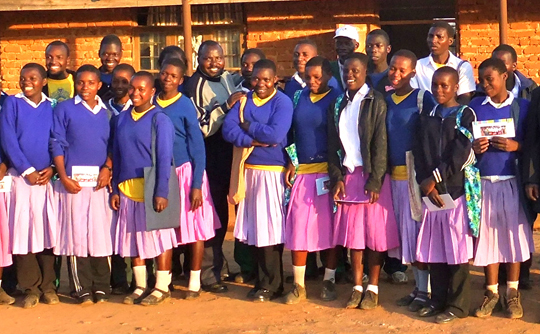 A ban on schoolgirls in Ghana crossing a river when menstruating – and on Tuesdays – has been condemned by child rights activists.
A ban on schoolgirls in Ghana crossing a river when menstruating – and on Tuesdays – has been condemned by child rights activists.
The ban, apparently issued by a local river god, means girls in Ghana’s Upper Denkyira East district could miss out on their education during their period as they have to cross the River Ofin to get to school, the BBC reported.
“These girls need to cross the river to get to their school, so banning them from doing this is a violation of their rights,” said Asum-Kwarteng Ahensah, country director for child rights group Plan International Ghana.
“We have seen girls being excluded from public gatherings when they are menstruating as they are deemed ‘dirty’.”
One in 10 African girls miss school during their periods, the U.N. children’s agency UNICEF estimates, which means they fall behind in their studies and often drop out of school.
UNICEF’s menstrual hygiene ambassador, Shamima Muslim Alhassan, told BBC Pidgin that the directive in Ghana violated girls’ rights to education.
“Sometimes I think that we need to ask for some form of accountability from these gods who continue to bar a lot of things from happening,” she was quoted as saying.
Myths and taboos surround menstruation around the world. In India, menstruating women and girls are often considered unclean and impure and are subjected to discrimination during their periods when, for example, they may not be allowed to go to the temple, or prepare and touch certain food.

